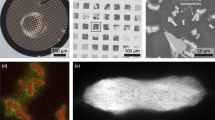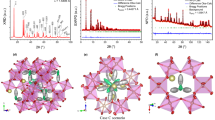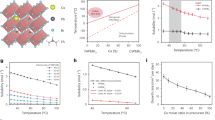Abstract
THE salts of hydrazoic acid are of military interest owing to the fact that many of them are explosive. They range in sensitivity from sodium azide, which is stable, to the heavy metal azides, such as lead and gold azides, which are highly explosive. Intermediate in its explosive character is barium azide, which is sufficiently safe to be handled conveniently, yet can be made to explode. Solid state studies of this material have been hindered by the lack of suitable single crystal specimens. In particular, in order to study the photolysis of barium azide by electron spin resonance, crystals with a minimum size of about 5 × 2 × 1 mm are required. Although crystals of barium azide monohydrate are relatively easy to grow1, it was felt that anhydrous crystals would offer a more simple system for study by electron spin resonance. This work was undertaken to develop a method of growing such crystals.
This is a preview of subscription content, access via your institution
Access options
Subscribe to this journal
Receive 51 print issues and online access
$199.00 per year
only $3.90 per issue
Buy this article
- Purchase on Springer Link
- Instant access to full article PDF
Prices may be subject to local taxes which are calculated during checkout
Similar content being viewed by others
References
Manno, R. P., Nature, 207, 1087 (1965).
Author information
Authors and Affiliations
Rights and permissions
About this article
Cite this article
MARINKAS, P. A Method of growing Anhydrous Single Crystals of Barium Azide. Nature 211, 1288–1289 (1966). https://doi.org/10.1038/2111288a0
Issue Date:
DOI: https://doi.org/10.1038/2111288a0
Comments
By submitting a comment you agree to abide by our Terms and Community Guidelines. If you find something abusive or that does not comply with our terms or guidelines please flag it as inappropriate.



